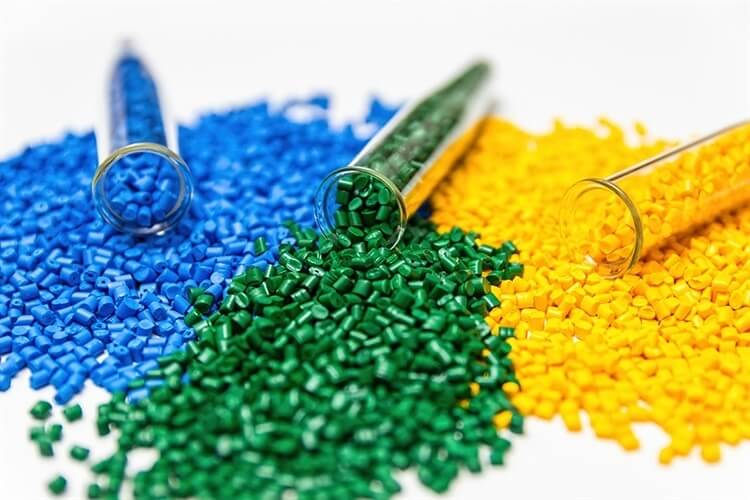Reusing Polymers: Promoting a Circular Economic Climate
Reusing Polymers: Promoting a Circular Economic Climate
Blog Article
Harnessing the Power of Polymers: Understanding the Considerable Uses and Favorable Effects
Polymers, with their diverse chemical frameworks and residential or commercial properties, have come to be crucial in various markets, changing the means we connect with products on an everyday basis. From the packaging that safeguards our food to the fibers that clothe us, the applications of polymers are substantial and differed. Beyond their ubiquitous visibility exists a much deeper understanding of their favorable impacts, getting to far past simple comfort. As we check out the substantial uses polymers and their duty in shaping a much more sustainable, efficient, and ingenious future, it comes to be noticeable that their potential is as substantial as the molecules themselves.
Versatility in Everyday Products
Polymers display exceptional flexibility in a large array of everyday items, showing their indispensable function in contemporary society. From the flexible plastic case of smart devices to the sturdy fibers in clothes, polymers have reinvented the means we interact with items in our everyday lives. Among one of the most typical uses polymers remains in product packaging materials. Polyethylene, for instance, is extensively made use of in food product packaging because of its light-weight, long lasting, and moisture-resistant properties. In addition, polymers play an essential role in the automotive industry, where they are made use of in making light-weight elements that improve fuel performance.
Additionally, polymers have located their means into the healthcare sector, with applications varying from medical tools to medication delivery systems. As an example, eco-friendly polymers are utilized in sutures and implants, reducing the danger of unfavorable reactions in people (Polymers). In the construction market, polymers are incorporated right into paints, adhesives, and insulation materials, boosting toughness and energy performance. Generally, the flexibility of polymers in day-to-day products emphasizes their importance in driving innovation and enhancing quality of life.
Sustainability in Material Innovations
With the continuous focus on environmental consciousness and resource performance, the focus moves in the direction of sustainability in material advancements, mirroring an expanding commitment to accountable production techniques throughout different industries. In the last few years, there has been a significant surge in the growth of lasting products, especially within the realm of polymers. These innovative products are made to minimize environmental influence throughout their whole lifecycle-- from sourcing resources to disposal or recycling.
One substantial element of sustainability in product developments is the principle of biodegradability. Going Here Eco-friendly polymers have actually amassed focus for their capacity to damage down normally into non-toxic by-products, reducing waste and contamination. In addition, making use of recycled polymers originated from post-consumer or post-industrial resources is acquiring grip as a method of promoting a circular economic climate and lowering dependency on virgin materials.

Enhancing Performance in Design
Enhancing performance in engineering needs a careful combination of innovative modern technologies and precise approaches to maximize functionality and efficiency in different industrial applications. Polymers play a critical function in this undertaking, supplying a wide variety of advantages that boost the efficiency of engineering materials and elements.
One key facet of boosting performance in engineering is the ability of polymers to boost sturdiness and toughness. By integrating polymers into Our site design styles, manufacturers can produce lightweight yet durable frameworks that can withstand high levels of anxiety and strain. This characteristic is especially beneficial in industries such as aerospace, auto, and construction, where the demand for strong yet light-weight materials is extremely important.
Moreover, polymers can additionally improve performance by supplying thermal and chemical resistance, reducing friction, and enhancing electric conductivity. These residential or commercial properties make polymers optimal for a large range of engineering applications, including seals, bearings, layers, and digital elements. Polymers. By harnessing the one-of-a-kind homes of polymers, engineers can maximize the performance of their styles and create more reliable and dependable items
Effect On Medical Advancements
The combination of advanced polymer modern technologies has actually considerably added to innovative advancements in the clinical field. Polymers have actually played an essential role in modern medical reference developments, ranging from medication shipment systems to cells design. Among the vital areas where polymers have made a substantial impact is in the advancement of biodegradable stitches and implants. These polymers can be customized to weaken at a details price, permitting far better injury healing and lowering the need for added surgical procedures to eliminate implants.
In addition, polymer-based materials are significantly being utilized in medical tools such as catheters, stents, and prosthetics due to their biocompatibility and adaptability. Polymer finishes on medical gadgets can prevent infections and improve total patient end results - Polymers. In addition, advancements in nanomedicine have actually made it possible for the usage of polymer nanoparticles for targeted medication delivery, enhancing the efficiency and minimizing side results of numerous medications
Duty in Environmental Conservation

Additionally, polymers are utilized in water treatment procedures, aiding in the filtration and recycling of water sources. This helps in decreasing water air pollution and making certain accessibility to tidy water for both human consumption and environmental health. Polymers likewise contribute in agriculture via the growth of biodegradable mulches and controlled-release plant foods, advertising sustainable farming techniques.
Conclusion
In verdict, polymers have confirmed to be a flexible and necessary material in various markets, from everyday items to engineering and medical innovations. Comprehending the comprehensive usages of polymers emphasizes their relevance in driving development and development in several fields.
Report this page